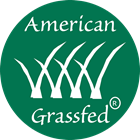By Richard Young
Two recent papers by British and other scientists are calling for big changes in the type and amounts of meat we eat. One of these papers, co-authored by Professor Mark Sutton from the Centre for Ecology and Hydrology, calls for a 50% reduction in total meat consumption. The other, co-authored by Professor Pete Smith from Aberdeen University, seeks a big reduction in the number of sheep, cattle and other ruminants. Large numbers of campaigners also see reducing meat, especially red meat, as the single most important change to make farming more sustainable and all of us healthier.
The Sustainable Food Trust has reflected some of this opinion on this blog, because we agree that meat is a key issue and we want to help stimulate debate and interest in this important subject.
 However, we have grave concerns that the way this ‘eat less meat’ message has been conceived and articulated over many years – it has in fact been running in various forms for more than 30 years – and in its current manifestation, is actually part of the problem, not part of the solution – making agriculture less, not more, sustainable, making diets more unhealthy, food production less secure, whilst destroying wildlife and planetary ecosystems in the process. Contrary to most other campaign groups, in direct opposition to them in fact, we believe that the consumption of red meat, dairy produce and animal fats needs to be increased, not decreased.
However, we have grave concerns that the way this ‘eat less meat’ message has been conceived and articulated over many years – it has in fact been running in various forms for more than 30 years – and in its current manifestation, is actually part of the problem, not part of the solution – making agriculture less, not more, sustainable, making diets more unhealthy, food production less secure, whilst destroying wildlife and planetary ecosystems in the process. Contrary to most other campaign groups, in direct opposition to them in fact, we believe that the consumption of red meat, dairy produce and animal fats needs to be increased, not decreased.
